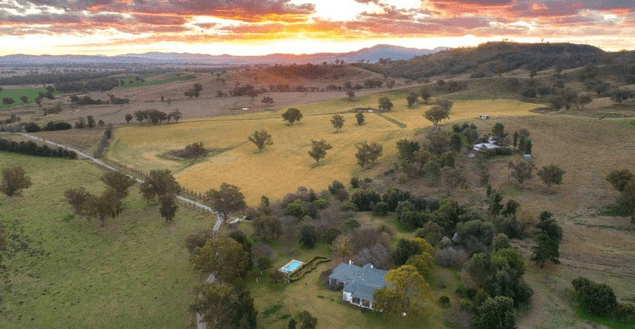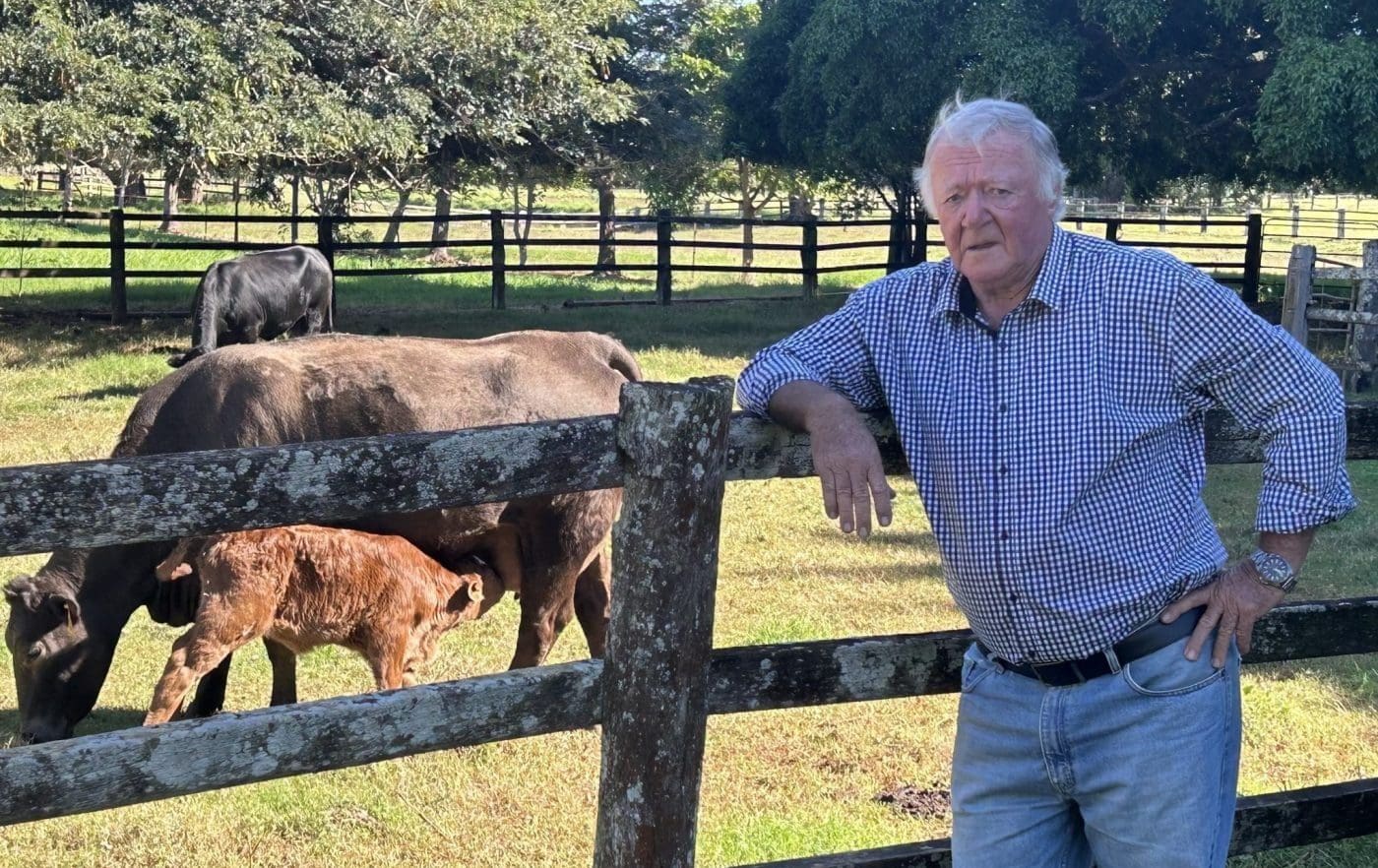
IN this first part of a two-part series, industry experts advise landholders on what course of action to take in the light of Federal Government’s moves to tax unrealised gains in superannuation.
The Treasury Laws Amendment (Better Targeted Superannuation Concessions and Other Measures) Bill 2023 is better known as the ‘Super Tax’ and if approved, will impose an additional 15 percent tax on the earnings of superannuation balances above $3 million.
According to the Superannuation Fund Association, there are around 17,000 super accounts holding farmland, and of those, 3500 have land valued at more than the $3-million threshold.
The National Farmers Federation fears if land values climb, tens of thousands more are next.
“Thousands of farms across Australia are held in self-managed superannuation funds so they can be leased to the next generation, providing both retirement income and an opportunity for the next generation to take over the business,” the NFF said last week.
The Federation said like any property, farmland values can rise, but this doesn’t translate into income.
“The government is planning on taxing these rises – or unrealised gains – even if there is no intention to sell the property. By doing this, the government is hitting families with unfair bills they can’t pay.”
The Australian Property Institute’s inaugural valuation report shows over the past 20 years, farmland rose in value more than any other type of property.
Since 2005, the value of agricultural land has jumped by 256 percent, compared with 154pc for housing during the period.
GrainGrowers has also weighed in, saying the $3M cap fails to consider the unique circumstances of agricultural producers.
“While it may be in superannuation, farmland is clearly a tool of trade and is not a speculative investment,” GrainGrowers said. “For decades, growers have structured their approach to retirement by placing their land into superannuation accounts.”
GrainGrowers said most producers don’t have super contributions like salary and wage earners.
“The land in the fund is a retirement asset, often used as part of a succession process that allows their children to continue farming. Paying tax on an unrealised gain on land is both unfair and inequitable, particularly as the increased value bears no relation to the ability to pay that tax.”
GrainGrowers said farmers are often asset-rich, but cash-poor.
“Drought-affected growers caught in this net effectively highlight the practical reality of the proposed tax. With no crop and no grain to deliver, these producers will be asked to pay a tax bill on a fictional profit.”
Brian Courtice, farmer and retired politician
Retired farmer Brian Courtice is a former Federal politician who chaired the Labor Party’s primary industries committee from 1990 to 1993. He fears the tax increase on super may be the tip of the iceberg and needs to be clarified.
Mr Courtice said Australian agriculture should not be subjected to an unrealised capital gains tax because it amounts to a death tax while you are still alive.
“When you consider most farmers are in agriculture for a lifetime, over the course of many years, land values will increase – but the income that farmers receive doesn’t rise. In fact, in many instances, it goes down because of input costs,” he said.
“Unless a primary producer sells the family farm, capital gains should not be directed at unrealised values. It’s totally un-Australian and would decimate agriculture,” Mr Courtice said.

Brian Courtice on his farm near Bundaberg.
As a matter of urgency, he has called on the NFF and state peak farm bodies to sit down with the Prime Minister, the Treasurer and the Agriculture Minister and explain the consequences of what he describes as a ‘punitive’ tax.
“Primary producers are already squeezed with rising electricity costs, whether it be through refrigeration or irrigation, so the last thing they need is to cough up tax on unrealised capital gains. It is simply not fair, and in my view, not the Aussie way.”
“When I chaired the primary industries committee during the Hawke and Keating governments, the door was always open to peak farm bodies and that is how you get things done, by sitting down and talking,” Mr Courtice said.
He said the current government could be here for a decade or more if they govern for all Australians, including rural and regional Australia.
“Reason will overcome ignorance and prejudice if you stand your ground and open up proper lines of communication. Anthony Albanese is a smart politician, but he needs to do more than wear an Akubra hat and RM Williams boots. He needs to actually get out there and talk to farmers and get a better understanding of the problems we face.”
Mr Courtice said many producers, particularly beef, wheat and wool growers, who have worked their properties for generations and have their holdings tied up in super funds, are extremely worried.
“If farmers have to pay unrealised capital gains, their viability will be impacted and why would future generations want to get into agriculture if they knew this was going to happen?”
“The mining and manufacturing industries are already under massive pressure because of the move towards net zero, so the last thing we need is to whack the agricultural sector with a tax like this,” he said.
A primary producer could not borrow their way out of debt, Mr Courtice said.
“You can only work your way out of debt if you are growing crops and selling produce above cost of production.”
He said the difficulty was that large swathes of Australia have recently experienced massive floods, particularly western Queensland and central New South Wales.
“Some farmers in western Queensland have lost their whole herds. On top of that, farmers in South Australia are experiencing drought, and that’s not because of so called ‘climate change’. This is the weather Australia has experienced since European settlement, and before European settlement.”
“The climate has continually changed, because we are a continent of three-million square miles. There will never be the same weather conditions on the east coast as the west coast, or the north coast as the south coast,” he said.
Mr Courtice said some people will be subjected to massive capital gains.
“How will the government quantify the capital gain? Where will it start and where will it end? Will it be calculated over the last 50 years, ten years or five years?”
He cited a massive movement in land prices in his local Bundaberg (Southern – Central Queensland) region.
“Many sugarcane farmers are converting to macadamias. Our neighbours have 130ha under macadamias, so their capital gain would go through the roof at the moment because they have planted trees. However, they haven’t received an income because the trees haven’t yet borne fruit, and it will be several years before they do.”
Linda Mackellar, Boyce Agri Services
Wagga Wagga-based Linda Mackellar is the agribusiness unit leader for chartered accountants and financial consultants Boyce Agri Services.
She said her firm was dealing directly with clients impacted by the proposed tax.

Linda Mackellar.
“Leading into June 30, Boyce typically catches up with clients for tax planning purposes, so the proposed legislation is part of that agenda for clients impacted by the proposed changes,” she said.
“We have analysed the overall client base in terms of numbers affected by the proposed changes, but more specifically, looked at the impact for those holding farmland in a super fund.”
Ms Mackellar said at this stage, Boyce’s advice was to wait until the government finalises the legislation.
“It is not law at this point in time and so, our advice is to wait and see what happens over the next couple of weeks. Then, when we are dealing with the final piece of legislation, we can work out what is the most appropriate strategy for each client following analysis of options based on their own circumstances and goals.”
Ms Mackellar said when that happens, Boyce will conduct an analysis on a client-by-client basis.
“Each circumstance will differ in terms of overall farm enterprise, the portion of a landholding within a superannuation environment, the overall tax rate and the balance of a fund.”
“As a result, these factors will be considered before advising clients on the best course of action, based on individual goals,” she said.
Ms Mackellar said if the changes are legislated in the current form, one of the biggest implications would be the cashflow impact of paying tax on an unrealised capital gain during adverse seasonal conditions.
“The current position put forward by the government, which may change, has raised serious concerns around the unrealised capital gain and how it is calculated.”
She said the concern is the cash flow implication of actually paying that new tax on an illiquid asset that isn’t currently dealt with.
“Where does the cash come from? And naturally, if it comes through in its current form, then the only place it can come from, particularly if it is the only asset in the super fund, is from the farming business. So, it’s an extra cost.”
- Next week in part two of this series: Other perspectives on the tax’s implications for rural property from PWC, Bentleys and BDO.

HAVE YOUR SAY